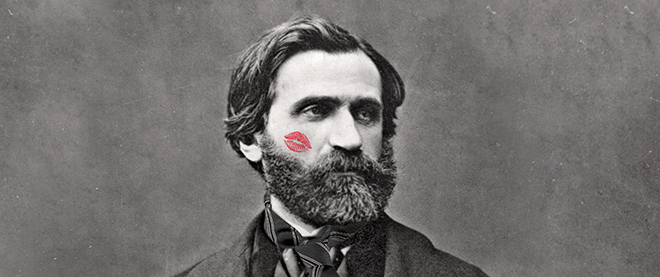Fifty Shades of Grey gets in on with classical music
10 did it for Boléro, now Fifty Shades is giving a 16th-century composition a bounce
Getty Images; Shutterstock; Photo Illustration by Levi Nicholson
Share

A sexy bestseller is the best way to introduce someone to serious music. Or that’s the assumption record companies are making about Fifty Shades of Grey. EMI Classics, one of the oldest classical record companies in the world, announced that it will be releasing an album of classical pieces “personally selected by author E.L. James herself.” These works were mentioned in her hit series of novels, or, as she put it in a statement, “inspired me while I wrote the Fifty Shades trilogy,” and all of them are being presented on the album as a way to get her readers interested in the classical back catalogue. The hope is that since her protagonist Christian Grey likes Frédéric Chopin and Johann Sebastian Bach, her readers will too. Or as British music critic Norman Lebrecht puts it, “Classical labels were always quick to jump on a book or movie bandwagon.”
The potential of Fifty Shades of Grey as a classical gateway drug became apparent to record companies earlier this year. The book provided a major boost to recordings of a 16th-century choral composition, Spem in Alium by Thomas Tallis, whose “astral, seraphic voices” accompany a sex scene in the novel. “We noticed a big jump in sales back in April but did not know why,” says Steve Smith, who produced a recording of the piece for the group the Tallis Scholars. “We remained oblivious to the reference in Fifty Shades of Grey until early in July when, having reached No. 7 in the U.K. classical singles chart, we made a determined effort to understand what was happening.”
Fifty Shades isn’t the first movie to boost the popularity of classical music. It’s not even the first to give it naughty associations: the Dudley Moore movie 10 mainstreamed the idea that Ravel’s Boléro was the perfect accompaniment for sex. “Classical music is often used as shorthand for ‘sophistication’ or indicating a character’s depth,” explains Vancouver Courier arts and entertainment editor Michael Kissinger. By tying a potentially trashy scene in with this type of music, authors and filmmakers can give a high-class veneer to their work—and encourage fans to check out the music to prove they’re as sophisticated and sexy as Christian Grey.
Having listened to a few minutes of music, will people actually be encouraged to become classical fans? Kissinger doesn’t think these little snippets of high culture achieve much. “Growing up, I remember watching the original Bad News Bears movie, which used Bizet’s Carmen prominently,” he says. But now, “I couldn’t name you another Bizet song. I can’t even tell you his first name.” James’s choices for the album include several songs that have become pop-culture clichés, like The Flower Duet from the opera Lakmé and Johann Pachelbel’s Canon. Media exposure has just made them into punchlines, instead of introducing listeners to the full works.
But sometimes, when a classical piece gets mentioned in mass media, it can have a real impact on the world of music. Stanley Kubrick helped make avant-garde, 20th-century music acceptable to the masses by using the Hungarian composer György Ligeti on the soundtrack to 2001. And Lebrecht says before Gustav Mahler’s fifth symphony was used in the 1971 film Death in Venice, major companies “had been struggling to sell the first Mahler symphonic cycles.” After the film came out, “Mahler went mass-market and has never looked back.”
And even if mass-media mentions don’t create permanent classical fans, they do provide record companies with an excuse to repackage old recordings and get them in stores. Lebrecht points out that the current U.S. classical bestseller is a soundtrack album from the film Moonrise Kingdom. Most of the music is by Benjamin Britten, whose music doesn’t exactly have crossover appeal. By partnering with the Fifty Shades brand, EMI can try to get some of that sales heat for what otherwise would just be another compilation album. “I think reading Fifty Shades of Grey increases readers’ interest in classical music about as much as it increases their likelihood of reading War and Peace or Infinite Jest,” Kissinger scoffs. But it might not matter so much if they’re listening to the music—as long as they’re buying it.